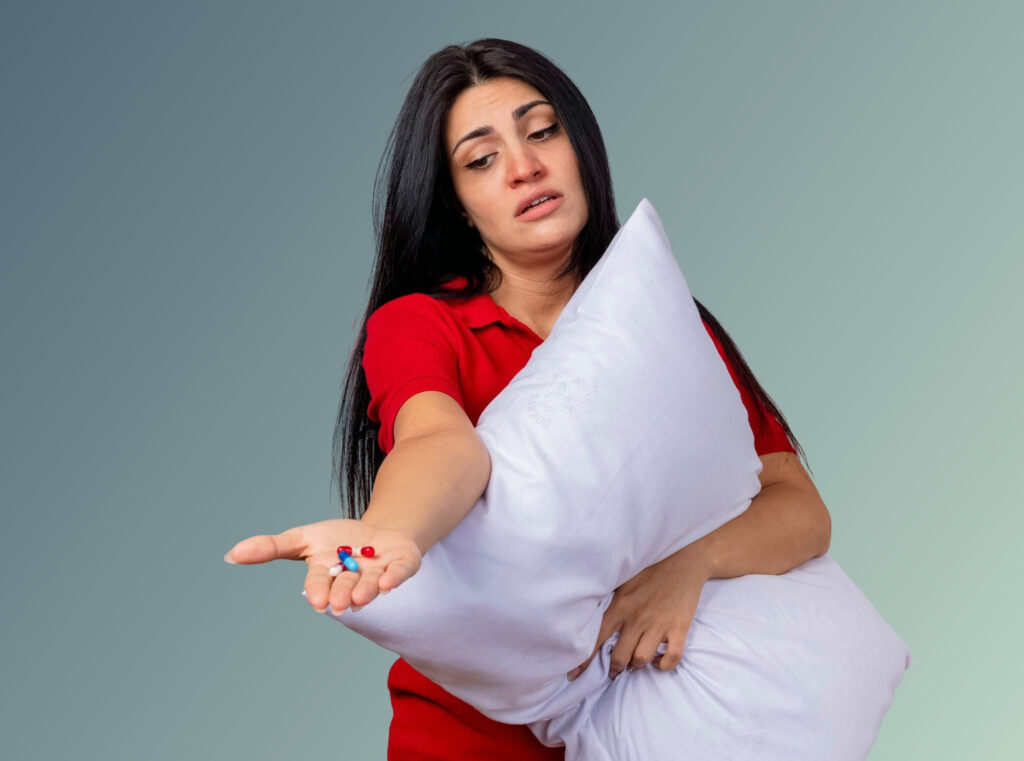Do you often feel exhausted for no reason, struggle with sudden mood swings, or battle
unexplained weight gain? You’re not alone! Many women experience hormonal imbalance,
yet they go unnoticed or misdiagnosed. Hormones are the body’s silent messengers, controlling
everything from metabolism and mood to skin health and reproductive cycles. But when they fall
out of sync, your body starts sending distress signals.
So, what causes this imbalance? And more importantly, how can you naturally restore
harmony without relying on medications? In this guide, we’ll dive into the causes, symptoms,
and natural treatments that can help you regain balance and feel like yourself again.
What is Hormonal Imbalance?
Hormonal imbalance happens when there’s too much or too little of a certain hormone in your
bloodstream. Since hormones regulate vital body functions like metabolism, mood, energy
levels, and fertility, even the slightest fluctuation can create chaos.
The key hormones affecting women’s health include:
∆ Estrogen & Progesterone – Control menstrual cycles, pregnancy, and mood.
∆ Testosterone – Impacts muscle growth, energy, and libido.
∆ Cortisol – The stress hormone; too much can lead to fatigue and weight gain.
∆ Thyroid Hormones – Regulate metabolism, energy, and body temperature.
∆ Insulin – Maintains blood sugar levels; imbalances can cause weight gain and diabetes.
When these hormones are out of balance, it can lead to a host of physical and emotional
issues that affect your daily life.
Causes of Hormonal Imbalance in Women
Several factors can throw your hormones out of balance, including:
- Chronic Stress & Anxiety
High levels of stress increase cortisol production, which can suppress reproductive hormones,
slow metabolism, and cause weight gain. This is why stress management is crucial for
hormonal health. - Poor Diet & Nutritional Deficiencies
Eating too much sugar, processed food, or unhealthy fats can cause insulin resistance,
leading to hormonal disturbances. Lack of essential nutrients like Omega-3s, Vitamin D, and
magnesium also contributes to imbalances. - Lack of Sleep
Your body restores and balances hormones during deep sleep. Poor sleep quality can cause
increased cortisol and insulin resistance, leading to fatigue, cravings, and weight gain. - Endocrine Disruptors in Everyday Products
Chemicals found in plastics, cosmetics, and household cleaners—such as BPA, parabens, and
phthalates—mimic estrogen and interfere with hormone production. - Underlying Health Conditions
∆ PCOS (Polycystic Ovary Syndrome) – Causes irregular periods, acne, and insulin
resistance.
∆ Thyroid Disorders – Leads to weight changes, hair loss, and mood swings.
∆ Perimenopause & Menopause – Natural hormonal shifts that come with aging.
Common Symptoms of Hormonal Imbalance
- Physical Symptoms:
- Unexplained weight gain/loss
- Irregular menstrual cycles
- Persistent acne and skin problems
- Hair thinning or excessive hair growth
- Chronic fatigue and low energy levels
- Emotional & Mental Symptoms:
- Mood swings, anxiety, or depression
- Brain fog and poor concentration
- Insomnia or difficulty sleeping
- Metabolic & Digestive Symptoms:
- Increased sugar cravings
- Slow metabolism and bloating
- Insulin resistance leading to diabetes
If you recognize several of these symptoms, it’s time to take action.
Natural Ways to Restore Hormonal Balance
The good news? You can restore hormonal harmony naturally with some lifestyle
adjustments. Here’s how:
- Eat a Hormone-Balancing Diet
Healthy Fats: Avocados, coconut oil, nuts, and seeds support hormone production.
Fiber-Rich Foods: Flaxseeds, chia seeds, and leafy greens help detox excess estrogen.
Protein: Helps regulate blood sugar and maintains muscle mass.
Probiotics: Improve gut health, which plays a role in hormonal balance.
Avoid processed foods, refined sugar, excessive caffeine, and alcohol, which can worsen
hormonal imbalance. - Manage Stress with Meditation & Chanting
Chronic stress is a major cause of hormonal disruptions. Practicing meditation, breathing
exercises,yoga asanas, and chanting can lower cortisol levels, reduce anxiety, and enhance
emotional well-being.
Scientific Benefits of Chanting:
● Reduces stress and lowers blood pressure.
● Improves focus and mental clarity.
● Enhances the production of feel-good hormones like serotonin and dopamine.
Try This: Chanting “Om” for 5-10 minutes daily can calm the nervous system and create
hormonal equilibrium. - Prioritize Sleep
Aim for 7-9 hours of quality sleep each night. Lack of sleep leads to high cortisol, insulin
resistance, and weight gain.
Tips for Better Sleep:
∆ Stick to a consistent bedtime routine.
∆ Avoid screens 30 minutes before bed.
∆ Use lavender oil or chamomile tea to relax.
- Exercise Smartly
Regular movement keeps your hormones in check!
∆ Strength Training: Boosts testosterone & metabolism.
∆ Yoga: Reduces stress and balances cortisol.
∆ Walking in Nature: Lowers cortisol and improves mental clarity.
Avoid excessive cardio—it can raise cortisol and worsen hormonal imbalance. - Reduce Toxins & Support Detoxification
Your liver plays a key role in hormone balance by flushing out excess estrogen.
- Drink lemon water every morning for natural detox.
- Avoid plastic containers (use glass or stainless steel).
- Switch to organic skincare & cleaning products.
When to Seek Medical Help
While natural remedies work for mild hormonal imbalances, severe or persistent symptoms
require professional guidance.
Visit a doctor if you experience:
∆ Extreme fatigue & unexplained weight gain/loss.
∆ Long-term irregular periods or severe PMS.
∆ Chronic anxiety, depression, or sleep disturbances.
Medical tests can check thyroid levels, estrogen, progesterone, and insulin to diagnose
underlying conditions.
Hormonal balance is the foundation of good health, and small lifestyle changes can make a
big difference. By eating the right foods, managing stress, sleeping well, and avoiding
toxins, you can naturally restore harmony to your body.
Start by incorporating one or two changes today and listen to your body. If symptoms
persist, seek medical advice to create a personalized plan.
What’s your go-to hormone-balancing habit? Share your experience in the comments below!


